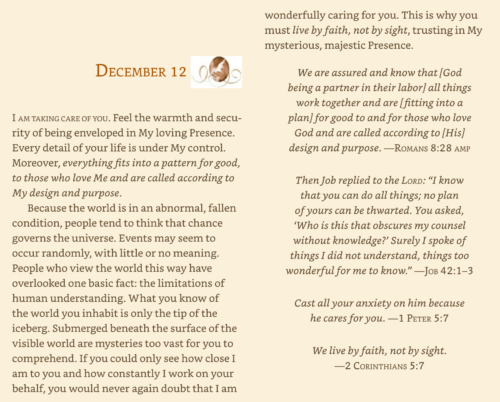Is the Universe on Our Side?
Father Richard Rohr describes three different worldviews people adhere to:
Underneath the religious or belief systems we hold, there are often three possible worldviews: The universe is against us, the universe is for us, or the universe is neutral.
The latter says that reality is indifferent. There is no God against us or for us; we’re basically on our own in the universe. Many good and even religious people subscribe to this worldview. Life has sadly convinced them that there probably is a God, and God might even be just and good, but this God is not actively involved in our lives or history. We can go through all the rites and services, follow all the rules, but if the grace of God hasn’t deeply touched us—which is the full meaning of conversion—we will have no meaningful awareness of the divine.
That’s the malaise of much of Western Christianity today. Many people keep up the external observance of reliance upon God, but underneath depend only on themselves. “Nothing’s going to happen unless I make it happen,” such people say to themselves. There is no active trust in the presence or the reality of God, or that God makes any real difference. This form of secularism is insidious because we can’t get at it. All the right words and ideas are there, but there is a foundational sense of an indifferent universe and an indifferent, distant God.
If someone stays in an indifferent universe for long, they usually move to the second worldview where reality is perceived as hostile, destructive, or judgmental. Not only is God not involved but God has to be appeased. For such people God is somehow actively against humanity: watching us, judging us, critiquing us, and certainly not on our side. Many Christians claim they don’t believe that, but it’s clear that they do from the fearful way they live.
The third worldview can only be given by grace, though it has a great head start with a loving and merciful family system. In this group the universe is not against us, nor is it sitting out there indifferent. Somehow, it’s on our side! Reality can be trusted. We don’t need to pull all the right strings or push all the right buttons. Grace is everywhere. It’s good to be here. Life is perhaps difficult, but it is still good and trustworthy at the core.
Until we meet a benevolent God and a benevolent universe, until we realize that the foundation of all is love, we will not be at home in this world. That meeting of God, that understanding experience, cannot be communicated by words. It is a gift given through encounter with Spirit. Its inherent character is best described by three overlapping characteristics: faith, hope, and love. When we experience those virtues, allow them to transform us, and are able pass them on, we are participating in the very life of God.
Foundational Trust
Father Richard shares how faith, hope, and love allow our participation in the benevolent nature of the universe:
From the very beginning, faith, hope, and love are planted deep within our nature—indeed they are our very nature as children of God (Romans 5:1–5, 8:14–17). Yet we have to awaken, allow, and advance this core identity by saying a conscious yes to it and drawing upon it as a reliable and Absolute Source.
Our “yes” to such implanted faith, hope, and love plays a crucial role in the divine equation. Human freedom matters. We matter. We have to choose to trust reality and even our physicality, which is finally to trust ourselves. How can people who do not trust themselves know how to trust anyone or anything at all? Trust, like love, is of one piece.
In the practical order, we find our Original Goodness, the image of God that we are, when we can discover and own the faith, hope, and love deeply planted within us:
A trust in inner coherence itself. “It all means something!” (Faith)
A trust that this coherence is positive and going somewhere good. (Hope)
A trust that this coherence includes me and even defines me. (Love)
This is the soul’s foundation. That we are capable of such trust and surrender is the objective basis for human goodness and holiness. It almost needs to be chosen again day by day, lest we slide toward cynicism, victim playing and making, or self-pity. No philosophy or government, no law or reason, can fully promise or offer us this attitude, but the gospel can and does. Healthy religion shares a compelling and attractive foundation for human goodness and dignity and shows us ways to build on that benevolent foundation.
Being created in the image of God (Genesis 1:26–27) gives everyone an equal and inherent dignity. However, in every age and culture, we have seen regressions toward racism, sexism, homophobia, militarism, ableism, and classism. This pattern tells me that unless we see dignity as being given universally, objectively, and from the beginning by God, we humans will constantly think it is up to us to decide. But our tragic history demonstrates that one group cannot be trusted to portion out worthiness and dignity to another. Our criteria tend to be self-referential and thus highly prejudiced, and the powerless and disadvantaged always lose out.
For the planet and for all living beings to move forward, we can rely on nothing less than an inherent original goodness and a universally shared dignity. Only then can we build, because the foundation is strong, and is itself good. Surely this is what Jesus meant when he told us to “dig and dig deep, and build your house on rock” (Luke 6:48). When we start with a positive vision, a resounding yes, we are more likely to proceed with generosity and hope, and we have a much greater chance of ending with an even bigger yes, which we would call “resurrection.”
